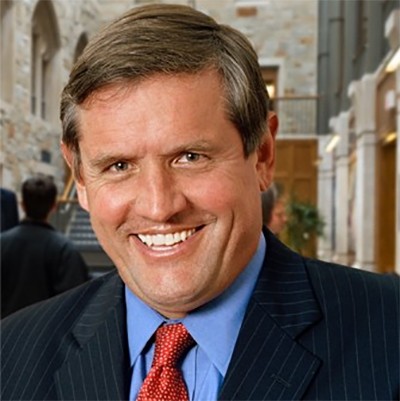
Can different sound frequencies influence our visual perceptions—and thus our product choices? When academic researchers predict stock returns, do they actually make the returns less predictable? Are companies finally using data analytics well enough to drive competitive advantage? This is just a sampling of recent research investigations by our faculty, highlighted here in the Carroll Connection. I rattle off the topics to make a point: Research matters.
It matters to society, to the academic disciplines, and to the success of our School as well as our national research university. But something else can easily be overlooked: Research matters most of all to our increasingly curious and capable students at the Carroll School of Management.
Simply put, great researchers also make for great faculty members. They have active, curious, and finely tuned minds. And as the caliber of our students grows every year, the undergraduates are able more than ever to sense true intellect. They see it in the way our faculty frames problems, puts forward hypotheses, and offers evidence rather than mere supposition. Those are critical lessons for future leaders. They’ll need to look at problems with a questioning eye, and they’ll rarely do well by jumping to judgment.
Yes, there are plenty of practical reasons why faculty research is valuable to students. For example, they’re exposed to the latest research in their coursework. They’re more likely to have opportunities for collaborative research with faculty experts. They might also have access to state-of-the-art research labs, like our Consumer Insights Panel for marketing behavior research, in Cushing Hall. (Yes, Cushing Hall. The Carroll School is growing beyond Fulton Hall, now also occupying two floors of Cushing.)
But in my mind, the bigger picture is that top researchers bring their passions for their areas of study and their rigorous methodologies into the classroom. Needless to say, our nonresearch faculty members also illustrate the life of the mind, exposing our students to vital areas of professional practice and expertise while excelling as teachers. All of our faculty contribute mightily to our mission.
At the Carroll School, we have spent much time nurturing a research culture—in addition to our robust teaching culture. And it is a culture, not just a solitary pursuit on the part of individual faculty members. To cite just one example: Hardly a week goes by without a couple of research-oriented events at our School, whether featuring our own faculty members and their latest findings or scholars from other institutions.
One series of research conversations is the Bartunek Faculty Research Forum, launched in 2010. Three times a year, faculty from across the disciplines in our School pack into Fulton’s Lynch Center for presentations by one of their own, lunch provided. The forum is named after Robert A. and Evelyn J. Ferris Chair Jean M. Bartunek (Management and Organization).
#17 Internationally
We don’t live by the rankings, but we were happy to see the results of the latest survey on that score by the Financial Times. The publication, which conducts the survey annually, ranked the Carroll School 17th in the world in research productivity and impact. That’s a long way up from #54 in 2008. The ranking places us at a tie with Cornell and Northwestern, and well ahead of UCLA.
We were also delighted to hear that Jeffrey Pontiff (Finance) had won the American Finance Association’s 2016 Amundi Smith Breeden Prize for his paper “Does Academic Research Destroy Stock Return Predictability?” coauthored with David McLean, a 2006 Carroll School doctoral graduate and a Georgetown University finance professor. The prize recognizes the top paper published in the Journal of Finance.
We are not only nurturing a research culture but also finding ways to measure it. The centerpiece of that effort is what we simply call “Research Reports.” These are three-page summaries compiled every spring, capturing the quantity and quality of a faculty member’s research. You could read more about it in the latest issue of Carroll Capital (our publication geared to management school leaders outside the Carroll School).
Finally, we are making sure all of our new professors keenly understand the special role of research at a management school of a liberal arts university. Last fall, the Carroll Connection profiled the faculty members who came on board in September, and each one highlighted connections between high-quality research and effective teaching.
“As a researcher, I’m trained to be critical about existing practice and solutions. I often ask myself: How much can we extend this solution to other settings? When does the method fail, and when it fails, why? What if we make this or that modification to the method?” explained Yehua Wei (Operations). “In classrooms I encourage the students to take the same critical, Socratic approach.”
That in a nutshell is why research matters to the bright and curious young men and women seeking out the Carroll School.
Andy Boynton ’78, P’13
John and Linda Powers Family Dean
Carroll School of Management


